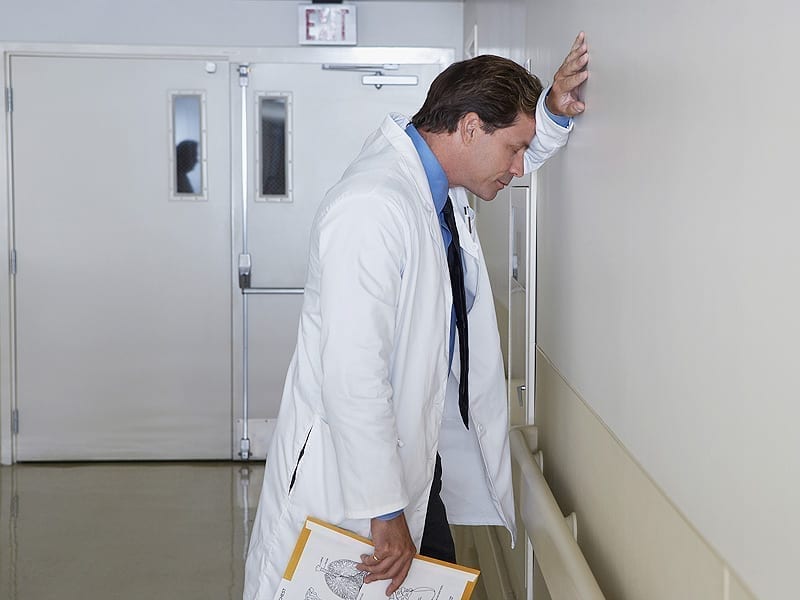Burnout is a serious problem among those working in the medical field, but studies suggest that pediatricians-in-training are especially vulnerable to burnout. Unfortunately, this burnout could lead to an increase in medical errors or residents taking “shortcuts during treatment.” How so? Well, pediatricians-in-training, often referred to as ‘residents,’ typically “work extremely long hours,” contributing to the likelihood of burnout. According to a recent study, “irregular work hours, sleep deprivation and limited leisure time” puts residents at a high risk for burnout, and “as many as three in four residents report feeling burned out in their jobs.”
Burnout is a serious problem among those working in the medical field, but studies suggest that pediatricians-in-training are especially vulnerable to burnout. Unfortunately, this burnout could lead to an increase in medical errors or residents taking “shortcuts during treatment.” How so? Well, pediatricians-in-training, often referred to as ‘residents,’ typically “work extremely long hours,” contributing to the likelihood of burnout. According to a recent study, “irregular work hours, sleep deprivation and limited leisure time” puts residents at a high risk for burnout, and “as many as three in four residents report feeling burned out in their jobs.”
Unfortunately, burnout is common in the medical field, and can negatively impact patient care. That’s why it’s important for changes to be made to help residents take care of themselves. After all, according to the recent study’s lead author, Dr. Tamara Baer, a pediatric physician at Boston Children’s Hospital in Massachusetts, “as pediatricians, quality patient care is always our top priority. However, to take good care of patients, physicians also need to remain healthy and motivated.” Pediatricians, like all doctors, can’t hope to take adequate care of their patients if they’re not being adequately cared for as well.
So how did the study stumble upon its results? How do the authors know so many pediatricians-in-training are suffering? For starters, they conducted a “web survey of 258 residents from 11 pediatric residency programs in New England” where the majority of respondents were “white women between the ages of 26 and 29, married or in a significant relationship, and didn’t have children.” During the web survey, participants were asked questions to measure burnout, “such as whether they felt more callous toward people since starting their job and whether they felt burned out by work.”

The results were a bit unnerving, with 39% of residents “experiencing burnout.” Those most likely to feel burned out were sleep-deprived residents over 30 years of age. These are high numbers, and point to a problem that needs to be addressed, especially when you consider the fact that burned out residents are “seven times more likely to make treatment or medication errors that were not due to inexperience or lack of knowledge, compared with residents who were not burned out.” Additionally, the study found that burned out residents “were 3.5 times more likely not to fully discuss treatment options or answer a patient’s questions and four times more likely to discharge a patient to make the service more manageable.”
Sometimes it’s easy to forget that doctors are people too, and just like any profession, their mental wellbeing impacts how well they do their job. According to Dr. John Mahan, a professor of pediatrics at The Ohio State University College of Medicine in Columbus, “if we do not address these issues of stress, compassion fatigue and emotional exhaustion, we will have less effective physicians and poorer health in our population.” To combat burnout, Mahan recommends that medical training programs should begin teaching residents “resilience-building skills like reflection, positivity and mindfulness.”
Hopefully, in the near future, we will see changes made to medical training programs that help residents become the confident, positive doctors their patients need.
Sources:
Burnout Among Trainee Pediatricians Leads To Worse Patient Care
Burnout in Pediatric Residents and Physicians: A Call to Action


Join the conversation!